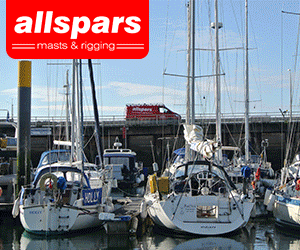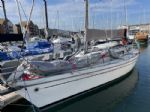












| Rossiter Pintail Mortagne sur Gironde, near Bordeaux |
 |
| Laser 28 - Excellent example of this great design Hamble le rice |
 |
| Laser 140101 Tynemouth |
 |
List classes of boat for sale |
Inland Sailing Wind Conditions |
Post Reply 
|
Page <123 |
| Author | |
ASok 
Really should get out more 
Joined: 26 Sep 07 Location: United Kingdom Online Status: Offline Posts: 739 |
 Post Options Post Options
 Quote Quote  Reply Reply
 Topic: Inland Sailing Wind Conditions Topic: Inland Sailing Wind ConditionsPosted: 26 Aug 09 at 4:09pm |
|
I'm not convinced the term 'sea breeze' is correct for inland waters. Jim C is quite right about heating and gradients. Plymouth is a great example - on a hot day the south facing slopes of Dartmoor heat, air rises and cooler air is sucked in off the sea giving the sea breeze. Inland waters probably get a similar effect from local features. I have heard that Datchet can get some type of 'sea breeze' (probably should call it thermally induced breeze) from the heating of the tarmac at Heathrow. Can't think what local feature at Grafham or Hunts would induce this effect, but i really can't believe that its the sea breeze from the Wash. The flow cell for that air movement would cover most of East Anglia. |
|
 |
|
tack'ho 
Really should get out more 
Joined: 08 Feb 06 Location: United Kingdom Online Status: Offline Posts: 1100 |
 Post Options Post Options
 Quote Quote  Reply Reply
 Posted: 11 Sep 09 at 9:38am Posted: 11 Sep 09 at 9:38am |
|
At risk of raising an old topic. Sea breezes do occur over Northern East Anglia under specific conditions. They do tend to flow from the wash direction, and tend to be more prevelant here and make it further inland than elsewhere in the country as suface friction is low (have you noticed how flat it is?) and the massive thermal effect of the huge fields and dark earth in mid spring (before the crop cover becomes to thick) However the breeze is rarely very strong and doesn't last very long, usually 1500-1700ish.
Edited by tack'ho |
|
|
I might be sailing it, but it's still sh**e!
|
|
 |
|
Post Reply 
|
Page <123 |
| Forum Jump | Forum Permissions  You cannot post new topics in this forum You cannot reply to topics in this forum You cannot delete your posts in this forum You cannot edit your posts in this forum You cannot create polls in this forum You cannot vote in polls in this forum |
Copyright ©2001-2010 Web Wiz
Change your personal settings, or read our privacy policy











 Printable Version
Printable Version Delicious
Delicious Digg
Digg Facebook
Facebook Furl
Furl Google
Google MySpace
MySpace Newsvine
Newsvine reddit
reddit StumbleUpon
StumbleUpon Twitter
Twitter Windows Live
Windows Live Yahoo Bookmarks
Yahoo Bookmarks Topic Options
Topic Options